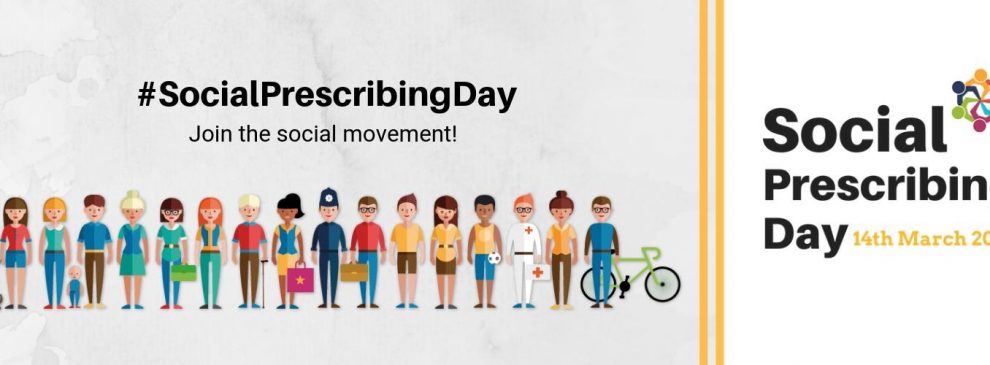The art of social prescribing: distance travelled and next steps
Added on Thursday, March 14th, 2019
Back in 2014, we worked on an exploratory project designed to consider the value of arts-based social prescribing. As part of the Art of Social Prescribing project, funded by the Arts and Humanities Research Council (AHRC) under a ‘public policy’ highlight notice, we convened a network of research, policy and practice communities to consider the efficacy of social prescribing as a fully integrated cultural commissioning model for mental health care in the Liverpool City Region (LCR). Together the network discussed the key characteristics of ‘successful’ arts on prescription schemes, based on examples from the field and the existing research and evidence base. We also discussed the relationship between research, policy and practice, including how this affects the way that the value of arts and culture is articulated and understood within and across professional health care services.
I have been reflecting on the project lately as part of an internal review ahead of REF 2021. Our research on social prescribing is a potential impact case study for the next submission under UoA 34. The project led to a set of recommendations concerning an asset-based model of cultural prescribing for the LCR, with an accompanying three-tier evaluation research framework, designed to assess the holistic value of cultural prescribing, including health and wellbeing outcomes, social value and return on investment, and heuristic research on the unique value of the creative experience. The research team (led by ICC Research Fellow Gayle Whelan) subsequently had the opportunity to test the validity of the proposed research framework, as part of the evaluation of Creative Alternatives, a leading referral-based programme in St Helens.
It has been satisfying to see the strategic rise and rise of social prescribing over the past few years as a credible and valid approach to more preventative, community-based health and social care. It is equally rewarding to see the political recognition of arts and culture as a key asset in this context, fuelled in no small part by the catalytic work of the All Party Parliamentary Group on Arts, Health and Wellbeing (APPGAHW) inquiry into practice and research in the arts in health and social care (2015-17). I had the honour of taking part in two round table discussions as part of the inquiry, the first dedicated to arts on prescription and social prescribing (May 2016) and the second on research and evidence (September 2016). It was fascinating to see the inquiry in action and to learn from leading, inspiring advocates in the field.
It is equally important for us as members of this growing community of practice to think about our collaborative impact as researchers. The work of the national Social Prescribing Network has been incredibly beneficial in coordinating research and evidence in the field, and in opening up new cross-sector collaborative opportunities. The internal review described above has been a useful exercise for us, despite the bureaucratic frustrations of REF! Emerging indicators of research impact include improving arts organisations’ sustainability in the LCR through opportunities created for direct commissioning from health and social care sectors; improving cost benefits for health commissioners in the LCR by evidencing the social value of arts-based social prescribing; and shaping national political advocacy on arts-based social prescribing.
After pausing for reflection on our earlier research, and taking into account the strategic direction of travel for social prescribing, we are now looking forward to developing this work in the summer in collaboration with The Women’s Organisation and the Institute of Psychology, Health and Society, University of Liverpool. Together we will explore the relationship between cultural wellbeing and women’s access to the creative economy in Liverpool. There has been little synergy so far between the parallel narratives of ‘economic growth’ in the cultural and creative industries (CCIs) and ‘public good’ in cultural policy debates, creating missed opportunities to explore ‘whole system’ wellbeing, equality and productivity in the CCIs. Our action research will explore how these policy areas correlate in practice, including the experiential relationship between cultural participation and cultural production, thinking specifically about wellbeing and self-efficacy amongst (aspirant and practising) creative women entrepreneurs.
Thank you to all the many inspiring people we have met since 2014 who continue to make the important case for social prescribing. Happy Social Prescribing Day, you deserve it!









